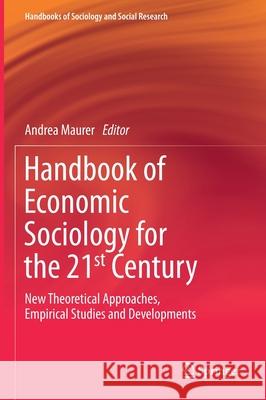Handbook of Economic Sociology for the 21st Century: New Theoretical Approaches, Empirical Studies and Developments » książka
topmenu
Handbook of Economic Sociology for the 21st Century: New Theoretical Approaches, Empirical Studies and Developments
ISBN-13: 9783030616182 / Angielski / Twarda / 2021 / 304 str.
Handbook of Economic Sociology for the 21st Century: New Theoretical Approaches, Empirical Studies and Developments
ISBN-13: 9783030616182 / Angielski / Twarda / 2021 / 304 str.
cena 928,04
(netto: 883,85 VAT: 5%)
Najniższa cena z 30 dni: 886,75
(netto: 883,85 VAT: 5%)
Najniższa cena z 30 dni: 886,75
Termin realizacji zamówienia:
ok. 22 dni roboczych.
ok. 22 dni roboczych.
Darmowa dostawa!
Kategorie BISAC:
Wydawca:
Springer
Seria wydawnicza:
Język:
Angielski
ISBN-13:
9783030616182
Rok wydania:
2021
Wydanie:
2021
Numer serii:
000384988
Ilość stron:
304
Waga:
0.76 kg
Wymiary:
25.4 x 17.78 x 1.91
Oprawa:
Twarda
Wolumenów:
01
Dodatkowe informacje:
Wydanie ilustrowane











